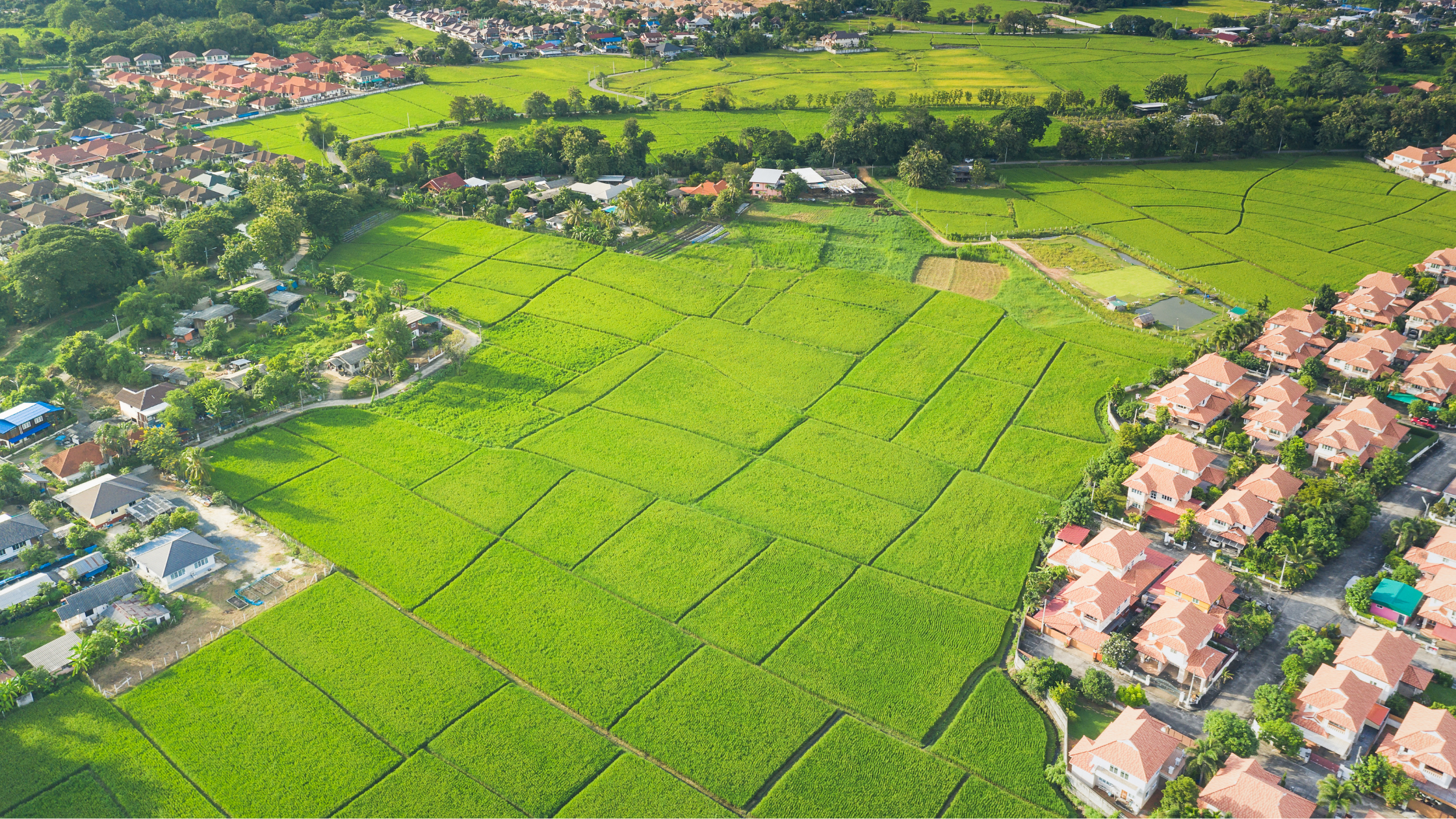Raw land offers a compelling proposition for those with foresight. It’s a blank canvas waiting to be transformed into a steady cash flow and long-term appreciation source. Unlike developed properties, raw land’s potential is limited only by your vision and local zoning regulations.
That said, patience is critical when investing in this type of real estate. Success hinges on thorough research, dedication, and the ability to wait for potentially high-profit margins.
It would help if you also had the right financing solution—raw land loans with advantageous terms—to maximize your investment profit.
Why raw land can be a good investment
Raw land is untouched and undeveloped terrain that still needs to be ready for construction. It might seem like an unconventional investment at first glance, but its popularity is rising due to two key factors: limited supply and growing demand.
As the global population increases, the finite land becomes more valuable, increasing prices.
Raw land investment ideas
Several strategies can make your land investment fruitful depending on your investment timeline and objectives. Let’s explore various approaches and highlight their unique advantages and challenges.
- Subdivide your land and sell smaller lots individually. This approach can enhance the overall value of your investment, as smaller, more affordable parcels often appeal to a broader market than a single large lot. However, subdividing involves detailed mapping and legal documentation — including submitting a proposed subdivision plan to local authorities. It can be a long process. If approved, the subdivision plan is recorded, which may increase the land’s marketability and potential value.
- Develop it. To unlock significant revenue streams, you can develop raw land into residential, multifamily, or commercial properties. Of course, you must carefully consider location and zoning regulations, but strategically navigating these factors can unlock substantial long-term value as housing and rental markets evolve.
- Buy and hold. Appreciation due to inflation is another core strategy for investors who want to profit from raw land. Land’s value tends to increase over time, making the buy-and-hold strategy particularly appealing for long-term investing. Opportunities to purchase land below market value—such as through auctions or county tax sales—can further enhance return potential. Conduct thorough due diligence, as some deals may carry more risk than reward.
- Lease it. Leasing land lets you create a steady income stream. Raw land can be leased for various purposes, from billboard and cell tower placements to ranchers’ agricultural use. Like other leasing arrangements, lease agreements aim to generate consistent returns.
It would help to have reliable financing for all these business plans, supporting your project from start to finish. Private capital investors can guide you through the different types of raw land loans and other available financing solutions.
Raw land issues to consider
Investing in raw land comes with its set of considerations and potential issues.
Before diving in, you need to be aware of land use restrictions that could impact what you can do with your property.
Factors like whether your land is on a floodplain, how it will connect to utilities, and the property taxes involved are critical. Each of these can affect your investment’s feasibility and profitability.
Are you looking into row crops or livestock land? Remember that this type of investment carries additional responsibilities. Market swings, adverse weather, or crop diseases can all impact farmland’s value and profitability.
Investing in small farmland can also introduce legal complexities such as mineral rights (determining who profits from the land’s natural resources). Consider regulations around access to natural resources like water.
There’s also the matter of financing. How do you plan to fund your raw land investment? Private capital investors can review your project and create a custom loan package that matches your goals and requirements.
How to evaluate raw land for investment
Success in raw land investment requires aligning your goals with the property’s specific characteristics. This means considering factors like location, zoning, and development potential. So, before you sign on the dotted line, make sure you’re asking the right questions:
What is the history of the land?
Conduct a thorough title search to identify legal disputes or issues tied to the land’s history. Quick turnovers by previous owners might indicate problems, so look closer.
Where is the plot located?
In any real estate investment — especially raw land — location is king. Start with a clear investment plan, then pinpoint markets that fit your criteria.
For example, a large plot in a remote area might be ideal for a long-term buy-and-hold strategy, where the land value is expected to appreciate over time.
However, the same plot wouldn’t be suitable for billboard rentals. Billboards typically require high-traffic areas with good visibility (which wouldn’t be the case for a remote location).
Additionally, market trends for billboard placements might favor specific regions or demographics, further diminishing the suitability of this remote plot.
Are any utilities available?
Raw land often conjures up images of middle-of-nowhere plots without essential utilities. Before moving forward, find out what’s available.
Is there water, electricity, or internet? Missing utilities can inflate costs and stretch timelines, as waiting on service installations can test your patience.
Confirm utility access early so you can plan the development process and estimate additional fees for bringing in services.
How is the property zoned?
Zoning determines what you can build, affecting everything from project feasibility to timelines. Knowing the zoning restrictions and the possibility of rezoning is vital.
Rezoning can delay projects and increase costs, so understanding these factors upfront can prevent future surprises.
Are there any other issues with the area?
Hire a land surveyor to inspect the property before committing. They can confirm boundaries and identify any restrictions (such as flood zones) that might affect your investment’s value. This step ensures you’re fully aware of what you’re buying into.
Get land loan advice from experts.
Do you have a raw land investment project and are looking for funding? Private Capital Investors offers land loans and other financing options—including hard money, stated income, and bridge loans—for investors who want to explore opportunities in this type of real estate—call (972) 865-6205 to get in touch.





